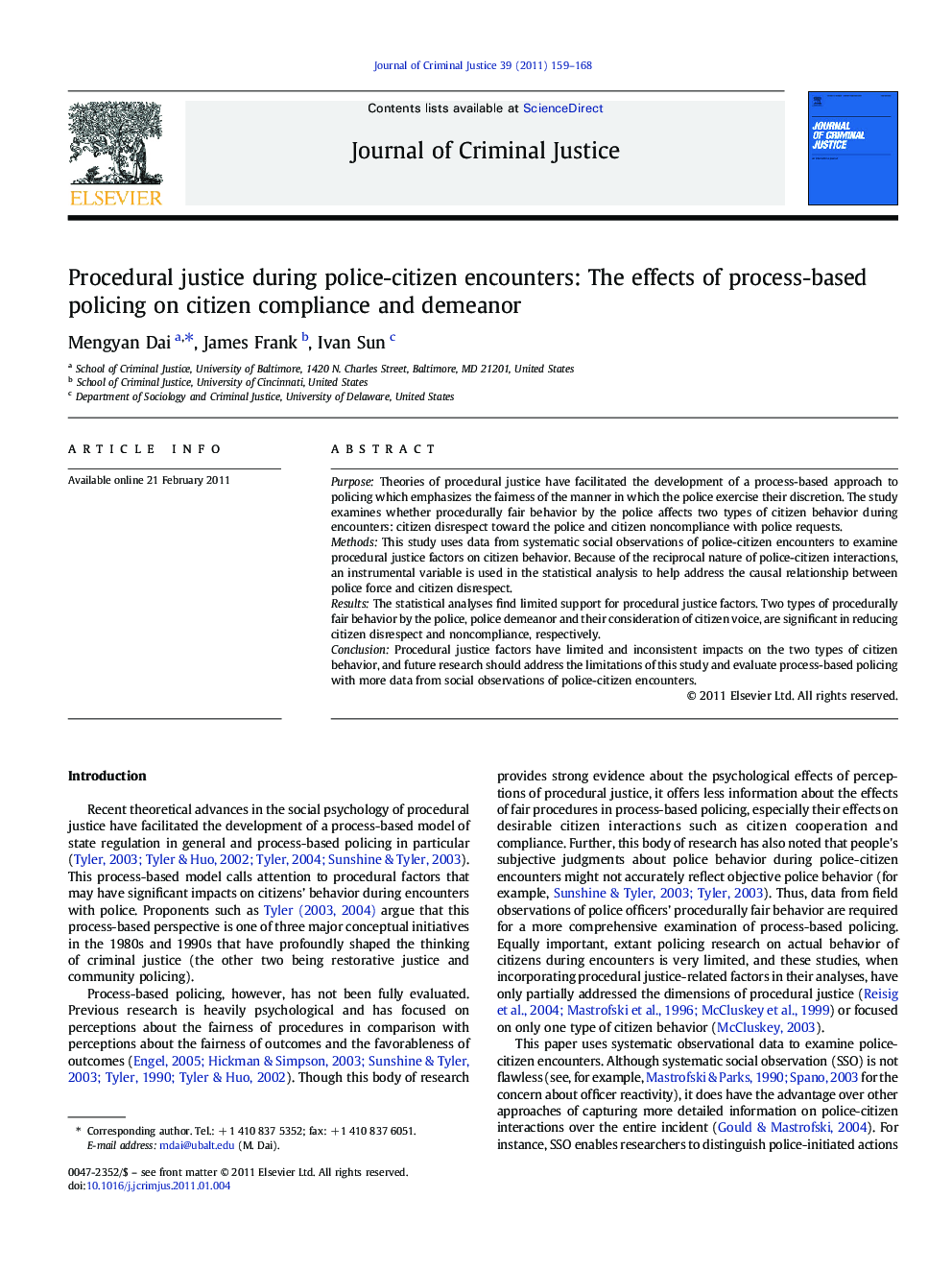| Article ID | Journal | Published Year | Pages | File Type |
|---|---|---|---|---|
| 883026 | Journal of Criminal Justice | 2011 | 10 Pages |
PurposeTheories of procedural justice have facilitated the development of a process-based approach to policing which emphasizes the fairness of the manner in which the police exercise their discretion. The study examines whether procedurally fair behavior by the police affects two types of citizen behavior during encounters: citizen disrespect toward the police and citizen noncompliance with police requests.MethodsThis study uses data from systematic social observations of police-citizen encounters to examine procedural justice factors on citizen behavior. Because of the reciprocal nature of police-citizen interactions, an instrumental variable is used in the statistical analysis to help address the causal relationship between police force and citizen disrespect.ResultsThe statistical analyses find limited support for procedural justice factors. Two types of procedurally fair behavior by the police, police demeanor and their consideration of citizen voice, are significant in reducing citizen disrespect and noncompliance, respectively.ConclusionProcedural justice factors have limited and inconsistent impacts on the two types of citizen behavior, and future research should address the limitations of this study and evaluate process-based policing with more data from social observations of police-citizen encounters.
Research Highlights► Procedural justice factors have limited and inconsistent effects on citizen behavior. ► Officers’ demeanor has significant effects on citizen disrespect. ► Officers’ consideration of citizen voice could significantly reduce citizen noncompliance. ► Citizen disrespect and citizen noncompliance do not share common antecedents.
